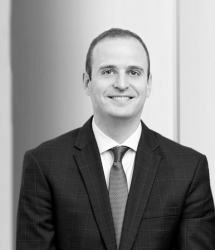Higher Education Associations Respond to USCIS Suspension of H-1B Premium Processing
On March 3, 2017, U.S. Citizenship and Immigration Services (USCIS) announced that it is temporarily suspending premium processing of H-1B skilled worker visa applications for up to six months, beginning on April 3, 2017. Premium processing is a USCIS program that provides for a 15 day initial review in exchange for a $1,225 filing fee. Colleges and universities in the U.S. rely heavily upon the premium processing program to fill faculty and research positions to add a level of predictability to their international hiring process.
USCIS said the suspension is intended to “reduce overall H-1B processing times” by allowing the government to “process long-pending petitions, which we have currently been unable to process due to the high volume of incoming petitions and the significant surge in premium processing requests over the past few years.” Specifically, USCIS will prioritize processing of H-1B extension petitions that are nearing 240 days pending, since the automatic extension of employment authorization only lasts for 240 days after the prior petition expiration.
In a joint letter cosigned by the Association of American Medical Colleges, the Association of American Universities, the Association of Public and Land-grant Universities, the College and University Professional Association for Human Resources and NAFSA: Association of International Educators on March 22, 2017, USCIS was urged by five major higher education associations to reconsider the suspension. The letter claims that U.S. universities and their affiliated institutions, which adhere to a strict academic calendar, will be disproportionately harmed by the suspension of premium processing.
The letter raises practical concerns specific to the world of higher education, arguing that without premium processing, many universities that are currently in their hiring process will not be able to have their international employees begin work until mid-semester at best, potentially leaving classes without professors. This creates a potential snowball effect on students, leaving students unable to take vital classes, which in turn could result in a delay to degree completion since many courses are taught in annual or semester sequences. Temporary as the suspension may be, its impact on the higher education community may be much longer lasting.
The March 3, 2017 USCIS press release can be found here.
Client Tip: USCIS will continue to premium process H-1B petitions if the premium processing request was properly filed before April 3, 2017. After this deadline, higher education institutions should consider filing extension petitions as early as possible in the six month filing window in order to minimize the disruption this suspension is likely to cause.
Categorized: Uncategorized



